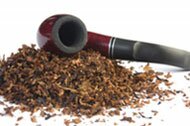Dr James Cant of the British Lung Foundation carried out an experiment to measure the amount of toxins passed on to passengers. All smoking in cars should be banned across the UK to protect people from secondhand smoke, doctors say.
The British Medical Association called for the extension of the current ban on smoking in public places after reviewing evidence of the dangers.
It highlighted research showing the levels of toxins in a car can be up to 23 times higher than in a smoky bar.
But a report by a cross-party group of MPs and peers said non-legislative options should be considered as well.
The All-Party Parliamentary Group on Smoking and Health even said calling for an immediate ban could be “counterproductive” as consensus needed to be built across society before taking such as step.
The group said there should be a consultation on tackling smoking in cars which could look at whether it would be better to have an outright ban, or if more could be achieved by raising awareness about the dangers through education campaigns.
It pointed out that policing a ban on smoking in cars could be difficult.
No part of the UK has yet implemented a ban, although ministers in Northern Ireland have said they will launch a consultation on the issue.
Meanwhile, in Wales a public awareness campaign has begun highlighting the dangers of smoking in cars. Officials have said if that does not succeed over the next three years, a ban will be introduced.
Neither England or Scotland are currently considering introducing legislation at the moment.
But the BMA believes tougher action is needed.
The doctors’ union said an outright ban – even if there were no passengers – would be the best way of protecting children as well as non-smoking adults.
It said the young were particularly vulnerable from second-hand smoke as they absorbed more pollutants and their immune systems were less developed.
Research has show that second-hand smoke can increase the risk of a range of conditions, including sudden infant death syndrome and asthma, as well as impairing lung function.
Dr Vivienne Nathanson, head of science at the BMA, admitted introducing a ban would be a “bold and courageous” move.
She added: “The evidence for extending smoke-free legislation is compelling.”

 RSS Feed
RSS Feed Twitter
Twitter



 Posted in
Posted in  Tags:
Tags: 








